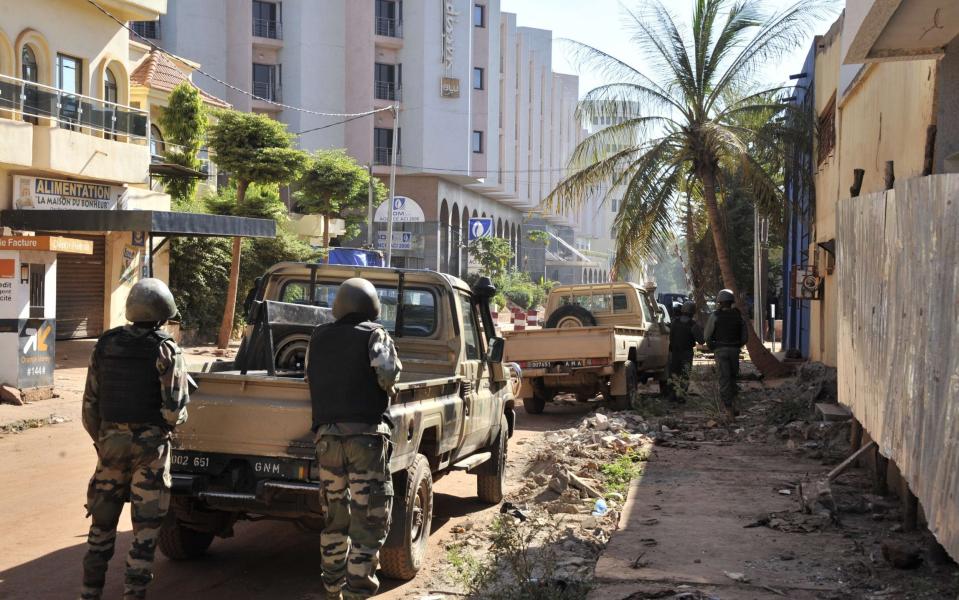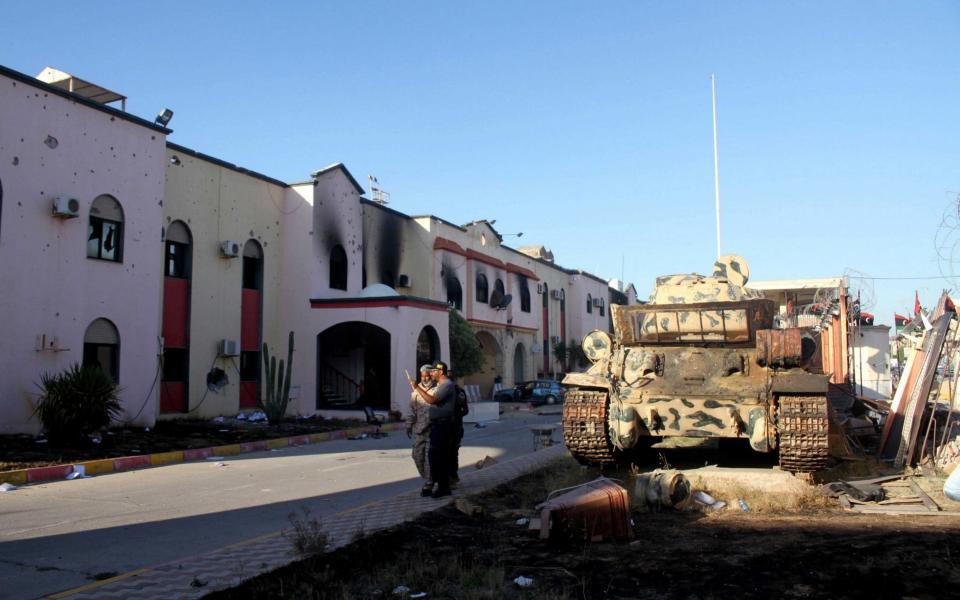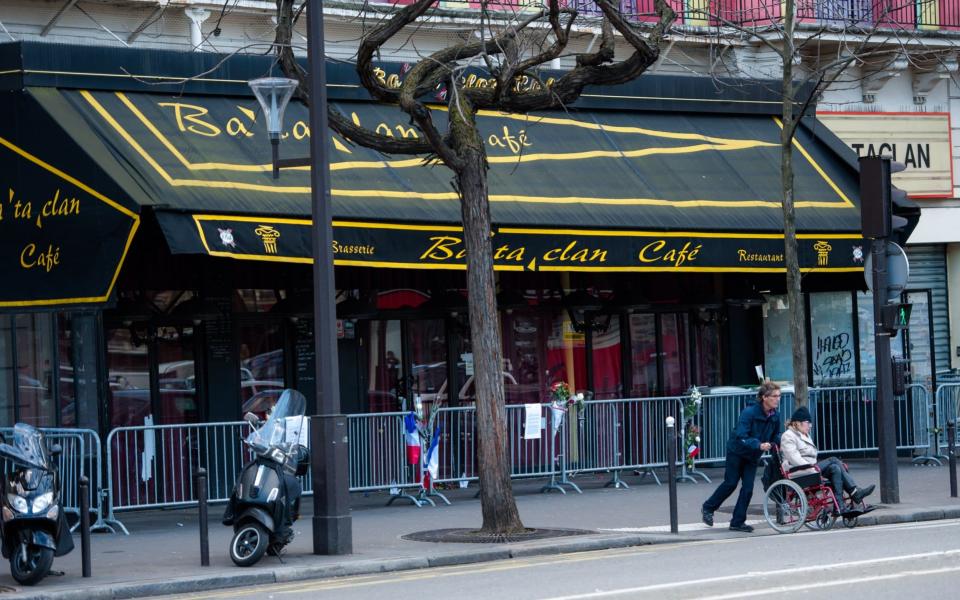If you absolutely have to get out of Dodge, Northcott Global Solutions might help

In November 2015, two lawyers were looking out over Bamako, the capital of Mali, from the roof of the Radisson Blu Hotel when they heard gunshots coming from below. Islamist militants were storming the building. They took 170 hostages, killing 20, before Malian commandos recaptured the hotel. But by then the lawyers (and one other guest who had gone up onto the roof with them) were long gone.
Their firm was a client of the emergency response company Northcott Global Solutions. When the shooting started, the pair phoned NGS’s operations room. Controllers contacted local security personnel, who hot-footed it to the hotel, gained access via a back staircase and had the three men out and safe in 17 minutes.
“We got lucky with that one; our response time was especially quick,” says Ted Jones, the chief executive of NGS, and a former officer in the Irish Guards. “But we work very hard to ensure that we often get lucky.”
A list of NGS’s achievements is a reminder of global flare-ups over the past decade. Jones founded his company in 2010, just before the Arab Spring erupted. When the revolts spread to Libya, the first planes out of Tripoli were filled with NGS clients.

Since then the company has evacuated 80 people out of Paris within two hours of the terrorist attack on the Bataclan Theatre, opened the Mali border to extract 19 US construction workers, built six ebola clinics for the UN in Burkina Faso, pulled off numerous ship-to-shore med-evacs from superyachts and secured the release of several kidnap victims (including one in Haiti who was released 17 minutes after he was nabbed in Port-au-Prince) – not forgetting the return of a teddy bear left on a plane from Toronto to Dubai.
Jones details these various crises and emergencies with the matter-of-factness and dark humour one would expect of an ex-soldier. A former member of the GB rowing team, he joined the army in 1998 just as “Tony Blair was sending us all over the shop”. He served in Northern Ireland, Iraq, Kuwait, Macedonia and Kosovo and was involved in several kidnap scenarios. So, when he left the army, he decided to become a kidnap and ransom specialist in the insurance industry.
In 2008 he joined AlfaEvac, a medical evacuation company based in Amman, Jordan that serviced “super-high stress environments”. At the time, most civilians working in Baghdad were based either around the international airport or the Green Zone. These two were linked by 12km of almost certainly the most dangerous stretch of tarmac in the world. “There were people having heart attacks or car crashes and everyone arguing for hours about who should go and pick them up,” Jones says. “It was a mess.”
He went about setting up a new model based on what he knew worked well in the army. “If the military is dealing with a medical emergency, they don’t wait for the sandstorm to clear and they don’t just send out a medical team,” he says.
“There will be security, there will transport, there will be a diplomatic element, lots of parts to ensure you get in and out in double-quick time.”

He looked at all of the different scenarios that clients might face medical, civil unrest, kidnap and ransom, natural disaster, invasion and so on. After that he worked through the local and regional assets he would need to deal with these situations: medical, security, transport, diplomatic, legal, financial, intelligence and hotel chains, for example.
The last on this list is an indication of how NGS thinks about things a bit differently. Most emergency response companies are set up to extract clients by air. But airports are often a focus for trouble in times of unrest. Jones says that it can be safer to move people away from flare-ups and “hibernate” them in hotels until things calm down.
This is, Jones argues, a key difference between NGS and its rivals. It has a network of more than 7,000 agents, which gives a huge array of options in dealing with an emergency. NGS, crucially, has worked out a way of doing due diligence on these agents through their insurance companies. “It allows us to build capability from London without having to fly around the world and shake everyone’s hand, which is just not viable.”
When an emergency happens, NGS can present clients with a range of options: fastest, cheapest and what it thinks is best. “It is more flexible and robust than the industry standard model, which is very prescriptive.”
Traditionally, the emergency assistance industry has relied on the local infrastructure. “That is fine and dandy in Western Europe but irrelevant in South Sudan,” Jones says. “If you have a car crash there and are waiting for an ambulance, you are going to be waiting for an awfully long time.” NGS says its model means it can usually reach clients very quickly – within 45 minutes in urban areas – compared to the industry standard of three to seven days.
NGS’s work also covers tourist travel. “You think that if you have bought insurance you are covered. And you are. An insurance company will indemnify you financially,” Jones says. “But if your daughter has appendicitis, a routine issue in most countries but which could become an emergency in Thailand, you are not thinking about the money.
“It’s not the insurance industry that’s broken; it’s the response industry. But if you absolutely, positively have to get out of Dodge, come to us. We have dealt with 4,500 cases in the past seven years and we have never failed a client.”

 Yahoo Finance
Yahoo Finance 